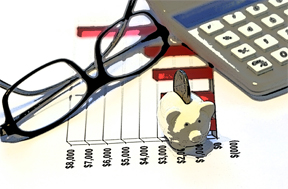 Even with the explosive and steady growth of self-publishing, literary agents remain in demand for both fiction and non-fiction books on countless topics. The advantage of employing a literary agent to represent your next book or ebook may benefit you.
Even with the explosive and steady growth of self-publishing, literary agents remain in demand for both fiction and non-fiction books on countless topics. The advantage of employing a literary agent to represent your next book or ebook may benefit you.
1. Literary Requirements
A competent literary agent knows the literary requirements that different book editors and publishers demand right now. He knows the length and style of books suitable for such and such publisher or book distributor, as well as the genres and subjects most likely to suit specific publishing companies. The talented literary agent has exclusive knowledge of the publishing industry which he has attained by years of incessant study.
2. Publishing Quotas
The literary agent knows which publishers have met their publishing quota and therefore does not waste valuable time in submitting to that publisher in that quarter. In the course of business, editors and publishers network with him to find promising new authors and/or manuscripts.

3) Knowledge of Publishers
The agent knows many trustworthy publishers of which ordinary writers may not know. In addition to the leading book publishers that everyone knows, the competent literary agent has connections and partnerships with a multitude of smaller publishers, trade publishers, niche publishers, regional publishers, and small press publishers. He knows which publishers buy manuscripts at fair prices, and which publishers are not overrun with unsolicited manuscripts from independent authors.
4) Networking with Publishers
The competent literary agent makes it his business to keep in touch and build rapport with such publishers. In turn the publishers gladly co-operate with him, to the advantage of the author who wants to sell his book. Many excellent book manuscripts which could not find a place in the crowded market are sold at a satisfactory price, and their authors finally find themselves with an audience and a growing fan base.
5) Bargaining Power
A reliable agent not only obtains payment on acceptance—he holds himself responsible for the good faith of his client; and for the most part, he obtains higher prices. This does not necessarily imply that he bargains with publishers—a practice which could lower his standing. Instead, he relies on his knowledge of the monetary value of the work he submits. He negotiates all offers until he reaches a fair price.

6) Negotiating
Most unknown authors are ready to accept the first price that a publisher offers, so long as they get into print. The publishers, as it is well known, trade on this fact when they deal direct with unknown authors. The publisher, as a rule, offers the lowest price to which he thinks the author will agree; the publisher never offers more than what he thinks a manuscript is worth. Between these two prices is a large margin—a margin which the literary agent, knowing the literary market, is in the position to negotiate.
7) Reputation
A competent agent will not submit unsuitable work to a publisher. Therefore, it stands to reason that a publishing firm, knowing this fact, will read and consider very carefully all work submitted by that agent.

Why should an author, who has placed his own work, employ an agent? The obvious answer is the author wants to increase his chance of success in getting published by a notable publisher. He wants to benefit financially and build a platform quickly. He also wishes to increase his output—a literary agent, who makes it his business to know the requirements and needs of the six hundred odd periodicals and publishers, has the connections to bring
more writing contracts to the author.



